If you’re looking at Turkey as a potential retirement destination, as somewhere to relocate with your family, or as a sunny retreat, wouldn’t it be ideal if you could try before you buy into the dream?
In this guide, we’ll explore what it’s like to live in Turkey as an expat, where expats live in Turkey, and what you need to do to move and settle down as easily as possible.
In this guide:
- Turkey’s overview as an expat destination
- Visas and residency: your options and requirements
- The cost of living
- Turkey as a retirement destination
- The pros and cons
- Things to know before you go
- Healthcare
- Where to live in Turkey: an overview of the most popular expat destinations.
Turkey’s highlights
Turkey is a big and multifaceted country with diverse landscapes, from mountains to salt flats to the deep blue of the Mediterranean Sea. It’s sunny, it’s steeped in history and legend, it’s controversial, and it’s plain beautiful. It’s also a wonderful mix of Eastern and Western cultures.

Although a Muslim-majority country, Turkey, on the whole, feels pretty secular. There are, of course, conservative attitudes within the society, and right-wing politics still prevail, but the general feeling when you are in Turkey is that it’s close to Europe.
It’s more obvious in big cities with their huge shopping malls and supermarkets, global coffee houses, and liberal women’s fashion.
Turkish people are very friendly and hospitable. In most tourist hotspots, you will find the locals who staff shops and restaurants are multilingual – they speak English, German, French, and Russian and don’t think much of it. If, in turn, you can learn some basic conversational Turkish, you will be much more respected.
There are very conservative parts of Turkey, but they are very rarely expat hotspots.
In general, you will still find Turkey exotic, but mildly, not too overwhelming. You will find that life in Turkey is more relaxed and less stressful than in major Western countries.
Visas and residence in Turkey
If you want to visit Turkey temporarily, you can simply apply for an E-Visa Turkey. This application is for those who want to enter Turkey for tourism and commerce purposes and allows you to stay in the country for 90 days within a 180-day period.
Not everyone needs an e-visa to visit Turkey. UK, US, Canadian, EU, Russian, and some other nationals do not require a visa to visit Turkey.
For a long non-resident stay
If you are planning to stay in Turkey for less than three months, the tourism visa will cover your stay.
Citizens of certain countries don’t even need to apply for e-visas to enter Turkey as temporary visitors. Check with your Turkish embassy or consulate if you are not sure.
However, if you plan on moving to live more permanently in Turkey, then you will have to apply for a permanent resident visa.
Living permanently in Turkey
If you plan to stay in Turkey longer than 90 days, you have to apply for a residence permit in advance.
A Turkish residence permit allows you to remain in Turkey for over three months in a half-year period. You need it if you plan to live, work, or study in Turkey permanently.
Apart from this, the permit will let you get married, apply for a Turkish driver’s license, get a tax number, open a bank account, purchase property, make investments, and much more.
If you have been employed by a Turkish-based business and are moving there for work, you will only need a work permit, which also serves as a residence permit.
Long-term residence permit in Turkey
If you have lived in Turkey legally for at least eight years uninterrupted with a residence permit issued by the Turkish authorities, then you can apply for a Turkish long-term permit, which is an indefinite leave to remain.
How to apply for Turkey Residence Permit
You need to apply within a month of your arrival in Turkey.
Apply online on the website of the Turkish Ministry of Internal Affairs.
When you submit your application, you will be redirected to the “Central Appointment System” website. There, you need to book an appointment at the nearest office of the Directorate General of Migration Management.
You will be given the address of the nearest DGMM office and a list of required documents. All you have to do now is to choose from the available dates and times for the appointment and pay the application and residence card fees.
Anyone under 65 must have full health insurance – state or private – if they are applying for a Turkish residency permit.

Here’s the list of documents required for your application:
- Residence Permit Application Form: Page 5 must be signed by the foreigner and/or their legal lawyer representative, provided that the foreigner is present in Turkey.
- Passport: Include the original passport and a photocopy of pages containing identity information, the page with the photo, and any processed pages.
- Four (4) Recent Photos: Ensure these photos are taken within the last 6 months, against a white background, and are biometric.
- Declaration of Financial Capacity: This declaration should confirm that you have sufficient and regular financial resources throughout your stay. A supporting document might be necessary, such as a photocopy of a bank statement showing a Turkish bank account with a deposit of $500.00 for each month of stay, equivalent to the monthly Turkish minimum wage index. For example, for a 1-year residence permit, the statement should show a lump-sum amount of $6,000 or $12,000 for a 2-year stay.
- Private Health Insurance: You must obtain private health insurance. Health insurance is not required for individuals under 18 or above 65, as the Ministry of Health covers medical expenses free of charge.
- Apartment or House Rental Contract: If you are residing in a rental property with a rental agreement, attach a notary public-approved copy of your rental agreement to the application documents.
- Additional Requirement for Istanbul: In Istanbul, you need to include two additional documents from the homeowner, namely the “Numarataş” obtained from the Belediye and “Tapu Güncel Kayit” from the Land Registry and Cadastro Office in Turkey as supporting documents for your rental contract.
Hiring legal help might save you time and help with the language barrier. However, theoretically, it is possible to go through the application on your own.
Turkish Citizenship-by-investment program
The fastest way to settle down in Turkey is to obtain a Turkish passport via the Citizenship by Investment route. You can do it within two months through property investments from $400,000.
The options start from $400,000 if you want to buy real estate to $500,000 if you choose one of the investment options. There’s also an option of creating employment for a minimum of 50 people.
This is by far the easiest way to get your Turkish residency sorted out.
If you have questions or need more information about your citizenship by investment options in Turkey, contact us via our page on Residency and Citizenship. We will be happy to help.
The cost of living in Turkey
Turkey is a brilliant value-for-money destination, and many expats find that their income lasts longer in Turkey and buys them more than in their home country. This is because, on average, the cost of living in Turkey is lower than in most Western countries, and Turkish prices come as a pleasant surprise to expats.
Here’s how the cost of living in Turkey compares to some North American and Northern European countries:
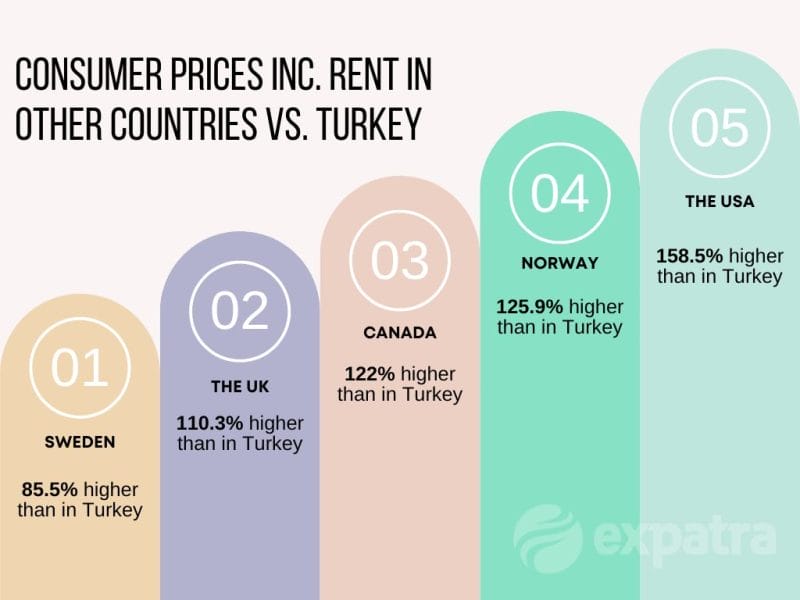
However, this depends on your chosen location.
If you plan on living in a city, be prepared for higher expenses. In this regard, Turkey isn’t much different from any other country in the world where you pay more for urban living.
Living in Istanbul doesn’t come cheap. It is, in fact, the most expensive place to live in Turkey. It features higher rents and higher day-to-day costs like transport, food, utilities, and dining out. If you have about $1000 after you pay your rent, you can live comfortably in Istanbul.
However, if you move towards the Aegean and Mediterranean coasts, the prices of almost everything will be much more agreeable. Some very popular coastal expat locations like Fethiye are about 20 percent cheaper than Istanbul. For many, they are much more fun places to live as well.
Turkey as a retirement destination
Turkey can offer its residents a good climate and an active and healthy lifestyle, and most expats find they get good value for money when they move to Turkey.
According to the Expatra Global Retirement Index, Turkey is in the top 20 best countries to retire in the world.
The index is based on the Expatra Global Retirement Survey that asks international retirees to rate their retirement destination’s infrastructure, climate, ease of settling down, value for money, friendliness, and other aspects of life in their retirement destination.
Here’s how Turkey scores:
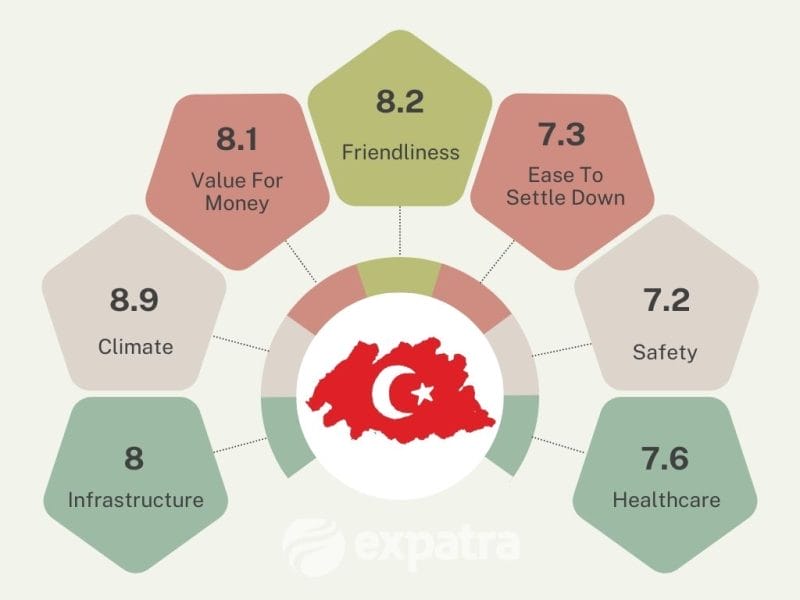
To make sure your idea of moving to Turkey in retirement works out well for you, learn the ropes beforehand. Research your locations, rent first before buying a property in Turkey, plan with your income and residence status, and, most importantly, make sure your health needs are covered.
Learning the language will help greatly. All official agencies in Turkey only speak Turkish, and everything becomes 100 times more difficult if you do not speak the language.
As a foreign retiree whose income is paid in another currency, you can appreciate in full Turkey as a great value-for-money destination.
If you get it right, you will enjoy your life in Turkey greatly.
Things to know before moving to Turkey
If you are planning to move to a non-tourist destination in Turkey, you won’t meet many people speaking English, so day-to-day communication may be challenging.

You are moving to a Muslim country, so you should feel comfortable with and be respectful of this fact. Get used to hearing the adhan (call for prayer) in Arabic (not Turkish) 5 times a day.
Things are a little different in Turkey. Some places are really conservative and people will look at you weirdly for wearing shorts, so be mindful of this.
During Ramadan (1 month of fasting), if you eat, drink or smoke in public, there is quite a high chance of being judged.
You will most probably be warmly greeted and accepted. Turks always try to make you feel welcome. But you simply won’t be able to truly and fully fit in; it’s not always possible. That’s why so many expats end up living in ever-growing expat communities.
Turks are ferocious drivers, and pedestrians are not much respected, so watch out when crossing a road.
Turkish people have a distinct tendency to disregard rules and procedures when they don’t suit their needs, so if you’re thinking of living in Turkey, beware that not everything will work as promised all the time.
Don’t count on finding employment in Turkey. Turkish laws are not very welcoming to foreign job-seekers, and most local companies require a very good command of the Turkish language in order to get started.
Unless you are being relocated by your company or headhunted by an international corporation, finding a high-paying job won’t be easy.
Don’t criticize the country, the food, the culture, etc., even if your Turkish friends do it in front of you.
Turkish coffee is not as popular as one might think. This isn’t to say that they don’t drink it, but çay (tea) is the absolute winner.
Living in Turkey: the pros and cons
There are advantages and disadvantages to relocating to Turkey. It’s important to be at least aware of both before you move to make sure you know what to expect.

The cons of living in Turkey
1. Turkish bureaucracy
When you want to register your residency in Turkey and get a work permit or import your car and household effects, you will encounter reams of paperwork.
You will have to visit dozens of government offices that are barely open for more than a couple of hours each day, and you will find yourself being given contradictory information whichever way you turn.
Also, remember most officials do not speak English.
One top tip: if you can find a willing and friendly runner who will assist you for a small fee, take up their offer of help.
2. Unstable economy
The Turkish economy can be a bit like a rollercoaster, with prices jumping around, job situations feeling shaky, and the value of the lira doing its own little dance.
So, if you’re thinking about making Turkey your home and investing locally, be ready to roll with the economic punches and plan your budgeting with a bit of flexibility.
3. Stray animals
There are many strays, street dogs, and cats, which can be shocking for expats at first. However, the situation is getting better.
You might find that quite a lot of stray dogs have ear tags and seem well cared for. They are looked after by an animal welfare organization, neutered and inoculated, and regularly checked according to their tag color and number.
You can help organizations look after stray animals with donations and volunteering. Or you can adopt a few animals as pets, as plenty of expats do.
The pros of living in Turkey
1. The lifestyle in Turkey is fantastic
Most of the year, the weather is so ideal that one can live outside. Meals can be taken on the terrace, and walks can be enjoyed in the spring, autumn, and even winter – even on cooler days, people switch on a terrace heater and shelter from the wind and enjoy the winter sun.
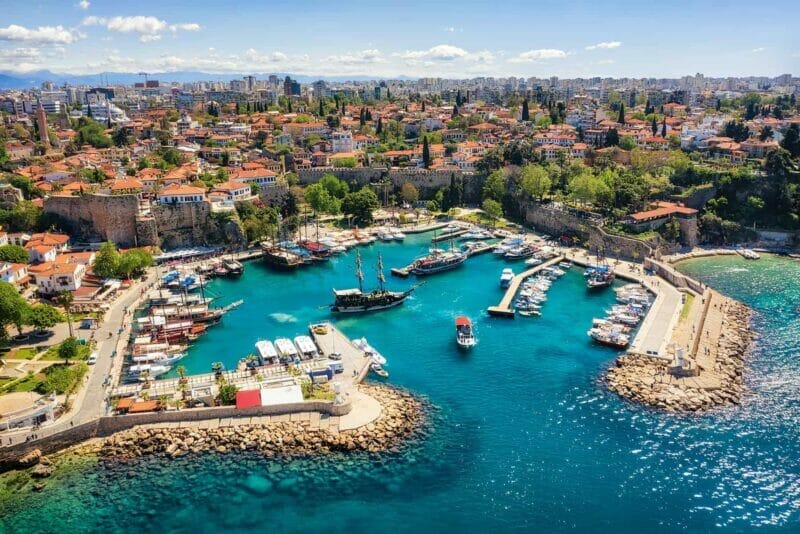
This outdoor lifestyle is healthier and also results in far more social interaction, which is good for the soul.
In the summer, of course, the sunshine boosts vitamin D levels and promotes a general feeling of well-being in most people.
All focus is on being outside, having barbecues, visiting the beach, sailing, walking, and socializing with friends at restaurants or bars rather than paying for cinema tickets or for the family to have a day out at an overpriced theme park.
2. The food is amazing
The abundance of locally grown fresh produce is staggering. Local markets are a perfect source of your fruit, vegetables, meat, cheese, and bread. You will be eating healthier and spending less compared to shopping in supermarkets.
3. Low cost of living
If your income comes outside of Turkey (such as pensions, investments, etc.), you will generally find that your income in Turkey can buy you much more than back in your home country.
Locally grown produce is incredibly affordable, as is eating out. It is possible to live in Turkey on a fraction of the income that you need in the UK, for example.
Working in Turkey
To be employed in Turkey, you need to have a work permit. Turkey has an excellent labor supply as the population is very young. It is also a major commitment for an employer to hire a foreigner over a Turkish national, so not many companies will bother applying for a work permit for a foreigner if they can employ a citizen.
The best chance for finding employment in Turkey is to be employed by an international company that has a branch in Turkey and will relocate you there.
If you can teach and have teaching experience, you are in a better position. If you’re planning to teach English and you’re a native speaker of the language, it’s easier to get a job in Turkey. Some major private schools struggle to find English language teachers to the point that they are willing to hire people with little experience. These are quite decently paying jobs.
It’s easier to find a well-paying job in big cities like Istanbul and Izmir than in the coastal locations preferred by expats.
If you want to live on the coast and need a job, the most common way to get employed is to ask your local expat businesses whether there are opportunities. You won’t be paid a lot, though.
If a certain income is a priority, setting up your own business or working remotely for an overseas company is a better option than trying to get employed locally.
Starting a business in Turkey
Foreign nationals can set up a business in Turkey. However, it’s highly advisable to get a professional body to help you to do so. Multiple companies help register and establish limited companies or other business formations.

It might take up to 3 days to register and establish a company in Turkey. There are no requirements for Turkish participation in the capital or management of a company established by foreign nationals.
Establishing a limited company in Turkey:
Requirements:
- Minimum 2 shareholders
- The capital requirement is TL 5,000
Benefits:
- Relatively fast incorporation process (3 days)
- 100 percent of foreign shareholders allowed
- 100 percent of foreign directors allowed
- Automatic membership in the Chamber of Commerce
- No Turkish participation is required in the management of the company
- Equal treatment for domestic and foreign shareholders
Turkish healthcare
Once you have been a legal resident for a year, you are eligible for state healthcare in Turkey – the Sosyal Güvenlik Kurumu (SGK) scheme.
When enrolling, you will receive an SGK health insurance ID card that you can use to access several services in state hospitals.
The scheme is funded by monthly fees paid by all participants.
To enroll, submit an initial application at your local SGK office. You will need your residence permit, passport, and proof of address. You will be provisionally enrolled and provided with a Provizyon Sorgulama Cevap (Provisional Enquiry Reply).
You will have to pay the premium for the first month of coverage.
Private health insurance in Turkey
You cannot obtain a residence permit in Turkey without having full health coverage of some sort. You also cannot use a state healthcare scheme until you have lived in Turkey legally for at least one year. So, in short, the answer is yes, you need health insurance for at least one year.
Also, private hospitals (özel hastane) and clinics have better facilities and well-trained staff who are more likely to speak English.
Private health insurance in Turkey is more expensive than your monthly SGK payments. However, it remains quite affordable. You can also skip the long queues in state-run hospitals.
If you plan on living in Turkey long-term or suffer from chronic illnesses, you should consider investing in health insurance.
Some expats opt for international health coverage. To ensure you get the best value for money, compare international health insurance options from various providers to find the best deal.
The best places to live in Turkey
As is so often the case when it comes to foreign citizens relocating to a popular destination abroad, there are quite a few expat enclaves now developing in Turkey, particularly along the southern coastline.
The idea of living on the Turquoise Coast in Turkey is very attractive for many expats, as they can appreciate the climate, beaches, and all the necessary amenities needed for a comfortable life in the sun.
If this appeals to you, it won’t be difficult to find a place where you feel at home without needing a long adjustment period.
Look at Altinkum, for example. This place is sometimes called “Little Britain”. It has one of the largest British expat communities and all the paraphernalia that comes with it, including British pubs, cafes, and restaurants. You won’t miss your traditional English breakfast or Sunday roast if you live there.
If you are after a more international feel, look at the Antalya region. It feels more European than other destinations in Turkey. There are more global expats permanently living in Antalya than in other parts of Turkey. It’s also the second most popular location for foreigners who wish to buy a property in Turkey, which is reflected in the prices.
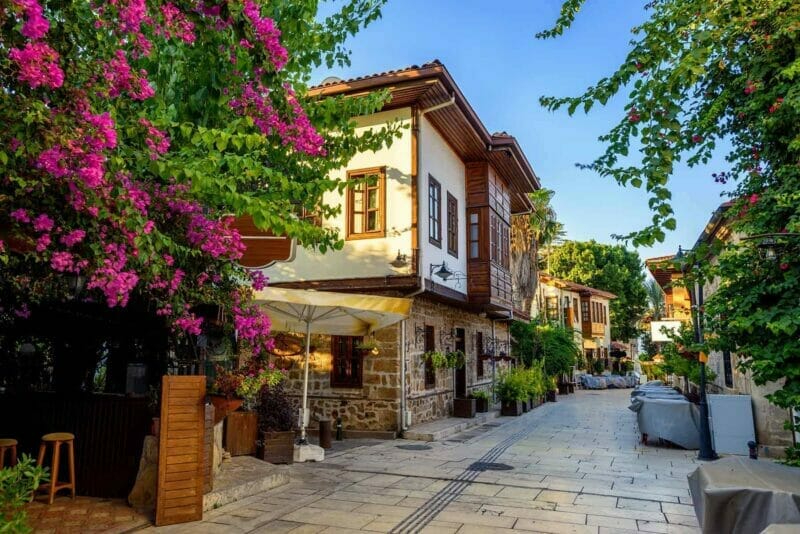
If you are looking for something quieter and more authentic, have a look at the Dalaman region. It’s not very popular with expats yet. The town of Dalaman lies inland, and the nearest beach is about 10k away, so you will need a car to get there.
The best thing about Dalaman is that it’s not popular with tourists either. So unlike coastal towns, Dalaman is never overrun by crowds during the tourist season.
If you are after a buzz of city living, your best choice will be to move to Istanbul. Istanbul is unique; it’s inclusive, diverse, and charming. You will also find that despite being a capital city, Istanbul is still more affordable than other popular European destinations.
You can find more ideas on where to live in Turkey in our guide to The Best Places To Live In Turkey For Expats
Final thoughts on living in Turkey
Turkey has so much going for it that it might easily become your perfect home abroad. Many expats love living in Turkey and won’t even consider going anywhere else.
However, fitting in when moving to a different country is a very personalized experience. What is perfect for some might be awful for you.
Doing initial research before you move is vital, but it won’t help you understand completely whether Turkey is the right country for you.
The best thing to do is to spend some time in the country as a temporary resident and talk to local expats before you commit to a permanent move.
You might find useful:
- Health Insurance For Expats In Turkey.
- Best Places To Live In Turkey
- All About Living In Istanbul.
- Didn’t find what you were looking for or need further advice? Contact us with your question or comment below, and we will do our best to help.
Helpful external links:
- Turkey’s electronic visa application system.
- Turkey’s Personal Health System: an online system where you can register with a family health center and manage your health information – e-nabiz.
- Turkey’s government online services platform: find info about your health insurance , taxes, residency procedures, traffic fines, and a whole range of other topics – Türkiye government.




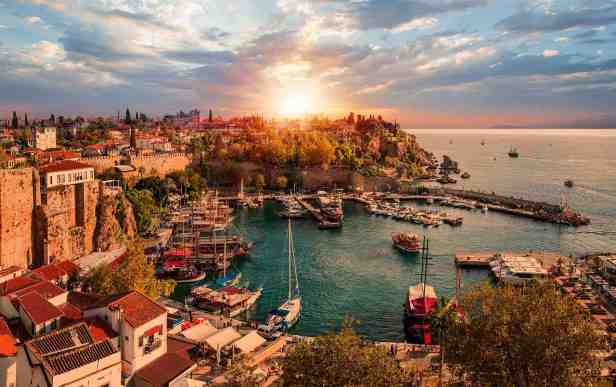
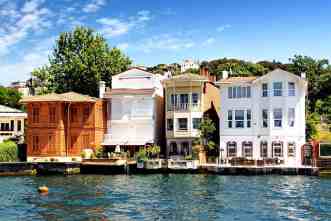
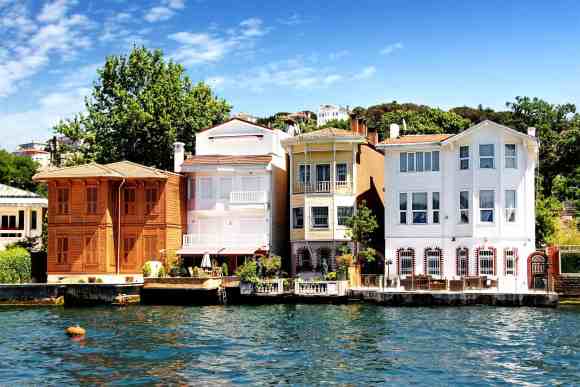






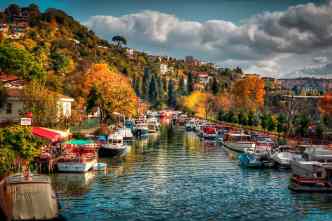
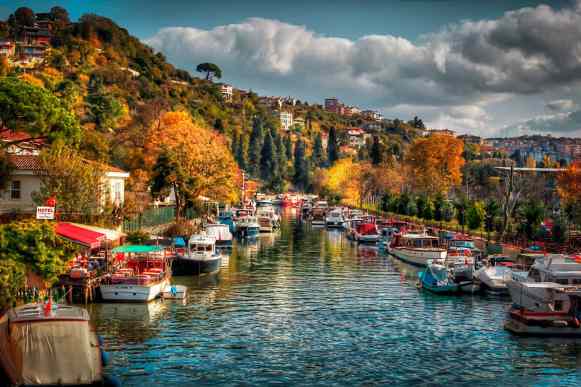
Culture, diversity, and beauty: Turkey has it all. Situated at the crossroads of Asia and Europe, this beautiful country doesn’t just boast of stunning views and rich culture. Turkey also has a rapidly-strengthening economy and enjoys its role as a hub of tourism.
I found the article worth while and enjoyable. The piece has knocked Spain from my list of possible future homes.
You have given me fair idea of what I’m up against, thank you
Your article has given me a better insight of how feasible my plans are in relocating to Turkey. Thank you.
Great, well written article.
Wonderful article with all the information I needed
Great article! I’m looking at moving to Turkey sometime next year and this was a very helpful list.
Great overview article – definitely given me ‘food-for-thought’ !
Thanks